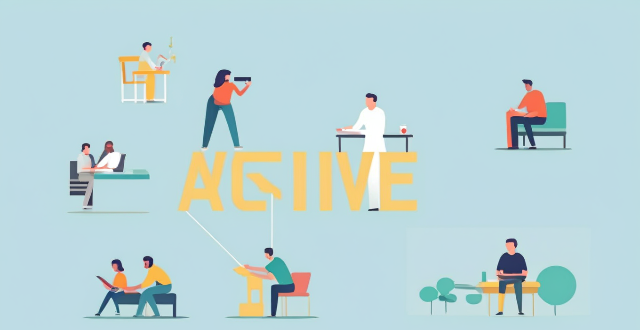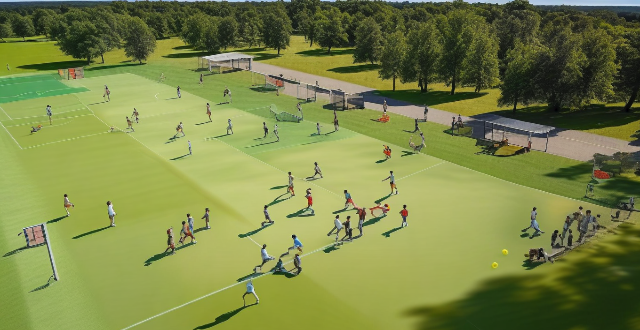Read Skill

Is speed reading a natural ability or a skill that can be learned ?
Speed reading is a topic of interest for many individuals who wish to improve their reading efficiency and comprehension. The question arises whether speed reading is a natural ability that some people possess, or if it is a skill that can be learned and developed through practice and training. While there may be some individuals who possess a natural ability for speed reading, it is generally accepted that speed reading is a skill that can be learned and improved upon through practice and training. By employing specific techniques and strategies, anyone can enhance their reading speed and comprehension, ultimately increasing their productivity and knowledge acquisition.

How can I improve my speed reading skills ?
Speed reading is a valuable skill that can help you save time and increase your productivity. Here are some tips on how to improve your speed reading skills: 1. Set a goal for yourself, such as the number of words per minute you want to read or the number of books you want to finish in a month. This will help you stay motivated and focused on improving your speed reading skills. 2. Eliminate distractions by finding a quiet place to read and turning off your phone and any unnecessary tabs on your computer. 3. Use a pointer, such as a pen or your finger, to keep track of where you are in the text and prevent your eyes from wandering back over the words. 4. Practice skimming by quickly scanning through the text to get an overall idea of what it's about. Look for keywords, headings, subheadings, and other important information that can give you an overview of the content. 5. Improve your vocabulary by learning new words regularly, either by reading challenging materials or using vocabulary-building apps and websites. 6. Read regularly, even if it's just for a few minutes each day. The more you read, the faster you'll become at recognizing words and comprehending the material. 7. Take breaks while reading to avoid eye strain and fatigue. Every 20-30 minutes, look away from the screen or book and focus on something else for a few minutes before returning to your reading. 8. Use technology, such as apps and software, to help you improve your speed reading skills. These tools often include features like word highlighting, pacing controls, and comprehension tests. By following these tips and practicing regularly, you should see a significant improvement in your speed reading skills over time. Remember to be patient with yourself and enjoy the process of learning!

Is it possible to read a book in one day using speed reading techniques ?
Speed reading is a technique that allows you to read faster than your normal reading speed. While it can be helpful for quickly reviewing material or getting an overview of a topic, it may not be suitable for all types of books. The pros and cons of speed reading are discussed, as well as tips for effectively using this technique. Ultimately, the decision to use speed reading should be based on personal preferences and goals, as well as the type of book being read.

Can nutrition affect an athlete's skill level ?
Nutrition is vital for athletes' overall well-being and performance, including skill enhancement, recovery, and injury prevention. It affects cognitive function, physical performance, and recovery, ultimately influencing an athlete's skill level. A balanced diet with proper nutrients can help athletes reach their full potential and succeed in their sports.

Can playing multiple sports help in skill development ?
Participation in multiple sports can enhance overall athleticism and skill development by improving physical attributes, reducing injury risk, developing transferable skills, and promoting mental toughness. It also offers social benefits such as expanded networks and increased opportunities for exposure. While specialization has its advantages, playing multiple sports can help athletes become well-rounded competitors.

How important is rest and recovery in skill enhancement ?
The text discusses the importance of rest and recovery in the process of skill enhancement. It highlights the cognitive and physical benefits of taking breaks, such as improved mental clarity, memory consolidation, muscle recovery, and injury prevention. The practical implications include avoiding burnout, enhancing performance, and strategies for incorporating rest into practice schedules. Overall, the text emphasizes that rest is a crucial component of long-term skill development and should be given equal consideration alongside deliberate practice and training regimens.

How can team sports help in individual skill development ?
Team sports contribute significantly to individual skill development by improving communication skills, enhancing leadership abilities, increasing self-confidence, bettering time management, improving social skills, promoting physical fitness and coordination, providing opportunities to learn from mistakes, and fostering adaptability.

How can I teach my child to better understand what they read ?
Teaching your child to better understand what they read involves encouraging active reading, using visual aids, discussing the text with them, and practicing regularly.

How do I choose a tennis training camp that fits my skill level ?
Choosing a tennis training camp that fits your skill level can significantly improve your game. Here are some tips on how to select the right camp: 1. Assess your current skill level by considering your experience, strengths and weaknesses, and fitness level. 2. Research different camps that offer programs specifically designed for your skill level using online directories, social media groups, and reviews from previous attendees. 3. Check the coaches' qualifications and experience, including their credentials, coaching philosophy, and track record of working with players at your skill level. 4. Consider the quality of the camp's facilities and amenities, such as well-maintained courts, access to equipment, and onsite amenities like locker rooms and dining areas. 5. Evaluate the camp's reputation and success rate by reading reviews, asking for referrals, and contacting the camp directly to learn more about their success stories.

It explains why children are not interested in literacy and how to correctly guide children to literacy

How do I read and understand organic food labels ?
Organic food labels can be confusing, but understandingOrganic food labels can be confusing, but understanding informed decisions about what you eat This certification ensures that the product has been grown and processed according to strict federal guidelines. 2. Check the List of Ingredients: Look for words like "organic," "made with organic ingredients," or "100% organic." These phrases indicate that the product has been made with organic ingredients. 3. Watch Out for Marketing Terms: Be wary of terms like "natural," "free-range," or "cage-free." Always look for the USDA Organic seal or other certifications that ensure the product meets specific standards. 4. Consider the Pesticide Residue: Even if a product is labeled as organic, there may still be some pesticide residue present. Look for products that are certified as "pesticide-free" or "certified organic." 5. Check for GMOs: Genetically modified organisms (GMOs) are not allowed in organic products. Make sure the product is labeled as "non-GMO" or "certified organic." 6. Read the Nutrition Facts Panel: Don't forget to read the nutrition facts panel on the back of the package. This will give you information about the product's calorie content, fat content, and other nutrients. Choose wisely based on your dietary needs and preferences.

How can I improve my reading comprehension skills ?
Improving reading comprehension skills requires a consistent effort and the use of various strategies. Here are some key points to help you enhance your ability to understand written texts: 1. Read Regularly - Establish a routine, varying genres and authors. 2. Active Reading - Annotate by highlighting or making notes. - Ask questions before and during reading. 3. Summarize and Paraphrase - Write summaries of sections in your own words. - Create mental images like diagrams or stories. 4. Discuss and Apply - Join book clubs or study groups for discussions. - Apply what you read to real-life situations. 5. Utilize Tools and Resources - Use dictionaries, thesauruses, and research background information. - Access online courses and interactive tools. By integrating these strategies into your daily routine, you can improve your reading comprehension skills over time.

Is there a link between improved comprehension and critical thinking abilities ?
The link between improved comprehension and critical thinking abilities is explored, with a focus on how these skills are interconnected and work together to enhance cognitive abilities. The article suggests that improving one skill can lead to improvements in the other, creating a virtuous cycle of cognitive development. Techniques for improving both skills are also discussed, including reading widely, engaging in debates, and practicing active listening.

What are the best ways to assess reading comprehension levels ?
Assessing reading comprehension levels is crucial in identifying strengths, weaknesses, and areas for improvement. Various methods include oral reading assessment, retelling or paraphrasing, written response questions, multiple-choice questions, and cloze tests. These techniques evaluate fluency, accuracy, understanding of main idea, details, and structure, factual recall, higher-level thinking skills, quick decision-making, context clue usage, grammar rules, vocabulary knowledge, and overall reading comprehension skills. By using a variety of assessment methods, educators can gain a comprehensive understanding of students' reading abilities and tailor instruction accordingly.

How do I make my writing more engaging and interesting to read ?
Writing is an art form that requires practice, patience, and a willingness to experiment with different techniques. To make your writing more engaging and interesting to read, consider using vivid language, telling stories, using active voice, varying sentence structure, incorporating humor, and showing rather than telling. These strategies can help bring your writing to life and keep readers interested.

Are tennis training camps effective for children and teenagers ?
Tennis training camps can be an effective way for children and teenagers to improve their skills and develop a love for the sport, depending on factors such as quality of instruction, level of commitment, and overall environment. Benefits include skill development, learning new techniques, building confidence, and socializing with other young players.

Which celebrities have their own book clubs ?
Book clubs have become increasingly popular in recent years, and many celebrities have jumped on the bandwagon by starting their own. Here are some notable examples: - **Oprah Winfrey**: Oprah's Book Club, started in 1996, has recommended over 70 books that often become bestsellers. - **Reese Witherspoon**: Reese's Book Club, launched in 2017, focuses on promoting diverse voices, particularly women writers. - **Emma Watson**: Our Shared Shelf, created in 2016, shares one book per month celebrating or exploring women's issues. - **Sarah Jessica Parker**: SJP's Picks, a collaboration with Books-A-Million, includes contemporary and classic reads. - **Jenna Bush Hager**: Read With Jenna, hosted on the Today show, features books that have touched her personally. - **Emily Henry**: Author Emily Henry shares favorite reads across various genres in her book club. - **Celebribookies**: A website tracking book recommendations of various celebrities, not a single celebrity's book club. These celebrity book clubs help promote reading and support authors by sharing their passion for literature.

Is it necessary to have a strong math background to learn programming effectively ?
Is it necessary to have a strong math background to learn programming effectively? Programming is a complex field that involves various skills and knowledge. One of the most common questions asked by beginners is whether having a strong math background is necessary for effective learning of programming. In this article, we will explore this question in detail. Mathematics plays a crucial role in programming, especially in areas such as data analysis, machine learning, and game development. However, it is not absolutely necessary for all types of programming. For example, if you are developing simple web applications or writing scripts to automate tasks, a strong math background may not be required. If you plan to work in fields like data science or game development, then having a good understanding of mathematics can be very beneficial. If you feel that your math skills are lacking, there are several ways to improve them through online courses, reading books, practicing problem solving, and joining study groups. With dedication and effort, anyone can improve their math skills and become an effective programmer.

Are there any specific exercises or drills for skill improvement in basketball/football/tennis, etc. ?
Topic: Skill Improvement Exercises and Drills in Basketball, Football, and Tennis Basketball: - Dribble the ball with alternating hands and in a figure 8 motion to improve ball handling skills. - Practice shooting free throws and spot shooting to enhance accuracy and consistency. - Work on lateral movement and closeout drills to improve defensive positioning and quickness. Football (Soccer): - Pass the ball against a wall and in a triangle formation to improve passing accuracy and touch. - Practice shooting at targets and receiving passes before shooting to enhance shooting accuracy and speed. - Work on marking and tackling drills to improve defensive skills and technique. Tennis: - Hit crosscourt groundstrokes and alternate forehand and backhand shots to improve accuracy and consistency. - Practice serving to targets and focusing on second serves to enhance serving reliability and placement. - Work on lateral movement and net approach drills to improve court coverage and net play.

How do I read food labels to ensure I'm making healthy choices ?
To make healthy food choices, understanding food labels is key. Start by checking the serving size and calories per serving. Examine the nutrients listed, including macronutrients, sugar content, and fiber. Look for essential vitamins and minerals. The ingredient list tells you what the product contains, so avoid unnecessary additives. Pay attention to the % Daily Value, focusing on key nutrients like sodium and fat. Check for certifications and understand marketing claims. If you have allergies, check the allergen list and look for warning labels. Finally, check the expiration date. By reading food labels carefully, you can make healthier choices that align with your dietary needs and preferences.

How do women-specific NGOs measure their impact on reducing poverty and inequality ?
This article explores how women-specific NGOs measure their impact on reducing poverty and inequality by focusing on key metrics such as economic empowerment, education and skill development, health and well-being, and gender equality and empowerment. It also highlights successful NGOs like Women's World Banking, Room to Read, and International Planned Parenthood Federation (IPPF) that use data collection tools to track progress towards their goals.

How often should I practice to see improvement in my golf skills ?
Golf improvement requires consistent practice, and the frequencyGolf improvement requires consistent practice, and the frequency your skill level, goals, and the frequency of your sessions depends on your skill level, goals, and availability. Assess your current skill level and set realistic goals to create a practice plan that includes both on-course and off-course activities. Beginners should aim for at least three practice sessions per week, while intermediates can do two to three and advanced players one or two. Make each session count by focusing on specific goals and tracking progress. Consistency is key, so stick to your practice plan and adjust it as needed based on your progress.

How has the Clean Energy Revolution affected the job market ?
The clean energy revolution has created new job opportunities across various sectors, including solar, wind, geothermal, hydropower, and bioenergy. The industry requires specialized skills in engineering, manufacturing, maintenance, sales, marketing, policy analysis, and advocacy. The clean energy revolution has also transformed existing industries by integrating renewable energy sources into their operations. The shift towards renewable energy sources is expected to continue, requiring individuals to acquire the necessary skills and knowledge to thrive in this rapidly evolving landscape.

Are there any age restrictions for attending a tennis training camp ?
Attending a tennis training camp can have age restrictions based on physical maturity, safety concerns, and skill level. Typically, the minimum age requirement is between 8-10 years old, but some camps may accept younger children with parental supervision or permission. There are usually no maximum age limits, as adult players often attend training camps to improve their skills or prepare for competitions. Attending a tennis training camp can provide numerous benefits, including improved skill level, increased fitness, and networking opportunities.

Can extracurricular activities improve academic performance ?
Extracurricular activities can improve academic performance by developing time management skills, increasing motivation and engagement, enhancing social skills and networking, and providing stress relief and mental health benefits.

How can I improve my self-evaluation skills in the workplace ?
Self-evaluation is a crucial skill in the workplace, allowing you to reflect on performance and set goals for improvement. To enhance this skill, set clear SMART goals, track progress, seek feedback, remain objective, reflect on experiences, celebrate successes, identify areas for improvement, and stay open to change. This process should be ongoing, with regular practice leading to greater success over time.

How do individual versus team sports differ in their impact on child development ?
Individual sports foster self-reliance and technical mastery, while team sports emphasize social skills and emotional intelligence. Both have unique benefits for child development, and the choice should consider the child's personality and desired skill development. A combination of both might provide the most well-rounded experience.

What is the influence of sports on leadership skills development among adolescents ?
This article discusses the influence of sports on leadership skills development among adolescents. It highlights the importance of leadership skills and how sports can contribute to their development through communication, problem-solving, decision-making, teamwork, and self-motivation. The article concludes that sports have a significant impact on the development of essential leadership qualities that are important for success in various aspects of life.